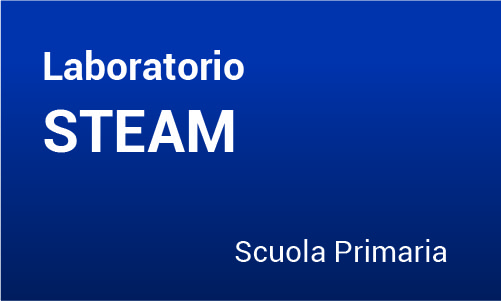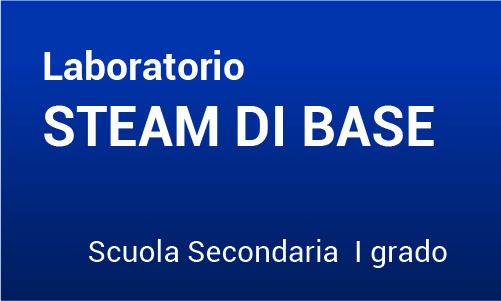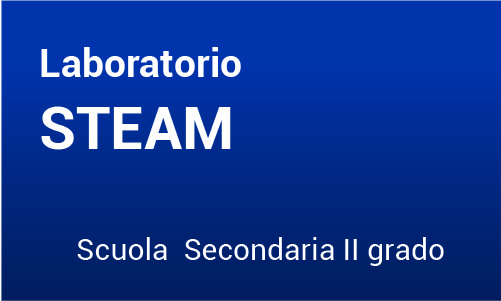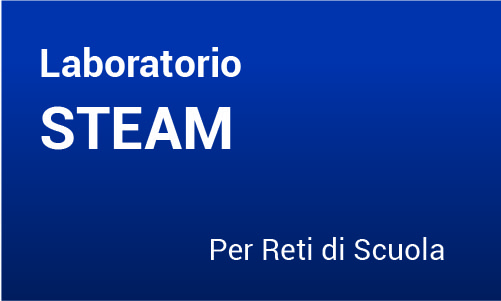Digital school for the 2021-2022 school year
This decree provides for an investment of over EUR 66 millionto which more are to be added this year 35 million earmarked for the training of teachers and school staff also in digital areas, for a total of approximately EUR 101 million.
Call deadline 15:00 15 June 2021
The first measure envisages a total investment of EUR 51.7 million for the construction of laboratory spaces and the purchase of digital tools for STEM teaching (as is well known, the acronym describes the multidisciplinary and interdisciplinary approach to Science, Technology, Engineering, Mathematics). The notice for the submission of applications by state educational institutions will be published on 13 May 2021.
The second measure, which has a specific financial endowment of EUR 4.1 million, is complementary to the previous one and concerns national projects, also promoted by networks of schools, on innovative digital methodologies in the teaching of STEAM (i.e. STEM with the addenda of the creative dimension proper to the Arts), aimed at participative and cooperative learning. The schools in this case too will be identified following a selection procedure, the notice of which will be published on 18 May 2021.
A further measure - contained in Ministerial Decree No 147 of 30 April 2021 - concerns the launch, in the coming school year, of the fourth edition of the 'Digital School Award'. The Award, in implementation of Action #5 of the PNSD, has made it possible in previous years to enhance the creativity and skills of students and schools in the design of innovative digital teaching solutions, both in the first and second cycle of education. The third edition, dedicated to innovations produced with integrated digital didactics, in which 1,675 educational institutions participated, is now underway. The decree provides for a new edition of the Award to encourage the dimension of the school as a 'crossroads of innovation' in the area.
The first of the above measures involves the design of dedicated environments, or equipping the interior spaces of classrooms with STEM-specific technologies. For example, digital tools could be acquired for teaching the fundamental principles of programming, coding, artificial intelligence; for observation, study and research in the sciences; for the laboratory teaching of mathematics; for design and creation according to the techniques of making.
For pre-school and primary schools, again as an example - referring to the methodological approach summarised in the 4Ps1 : Project, Peers, Passion, Play, etc.), setting equipment (heterogeneous materials and tools) can be acquired for the development of computational tinkering activities2 , an expression that recalls tinkering, trying out "this and that" in the search for the solution to a practical, actual problem. In addition, materials and tools can be acquired to implement the so-called "trialogical" approach3 , which, by means of techniques typical of collaborative learning, carries out activities for the construction of objects intended for concrete use4 . Further insights can be found in the Final Report of the Committee of Experts established by Ministerial Decree no. 203 of 21 April 2020 - School and Emergency Covid-19.
In essence, the effective use of financial resources involves the exercise of the research autonomy of educational institutions. It also requires the prior definition of 'what and how' it is good to develop, in relation to the learning context and the need to make it motivating. Without motivation, students do not develop skills but store information and content solely with a view to merely passing school tests. Information and content, moreover, often destined to be forgotten in the short term. On the contrary, the participative approach to scientific and technological learning is an essential part of the National Digital School Plan, as it should be for all disciplines.
Our proposals:



Experimentation of innovative teaching methodologies in the field of STEM
The 21 May The Ministry of Education has published a new public notice for the implementation of STEAM activities within school networks (already established or in the process of being established).
School institutions designated in the role of lead partner of a network of schools may participate in the call. Each lead school must ensure adequate national coverage by involving school institutions from at least 3 different regions.
For each project - to be carried out for the entire school year 2021-2022 - a maximum contribution of 180.000,00 €.
Each lead school, which is solely responsible for the activities, may submit one and only one project.
Deadline 15 June 2021 at 3 p.m.
Would you like to modify the products entered in the matrices or have a comparison on any customised projects?
Write to: education@ligra.it

